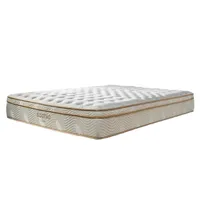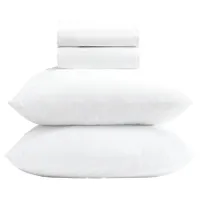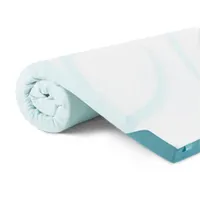Can't sleep? Your old bed could be to blame — here's how often should you replace your mattress
Plus tips on when to replace bedsheets, mattress protectors and toppers

Most people don't really know how often you should replace your mattress, but here's some real talk: it's probably more often than you think.
Here at Tom's Guide we've been testing best mattresses for a long time. We've put over 120 beds through their paces over the years as well as reporting on the mattress industry, and this means we know all the pros and cons of memory foam, hybrid, innerspring and latex mattresses, including how long they should last.
You might have had your mattress a good few years and it probably feels fine to you. But because you've been sleeping on it every night you won't have noticed any gradual degradation in its performance as it ages. Ever gone away for the night and noticed that you slept a lot better? That could be a sign that your current bed is over the hill.
Sleeping on a bed that's getting on in years isn't good for you. It could be depriving you of quality sleep as well as causing aches and pains and possibly other health issues. But how can you tell whether it's time to hit up some Black Friday mattress deals and invest in a whole new bed? Here's what you need to know.
How often should you replace your mattress?
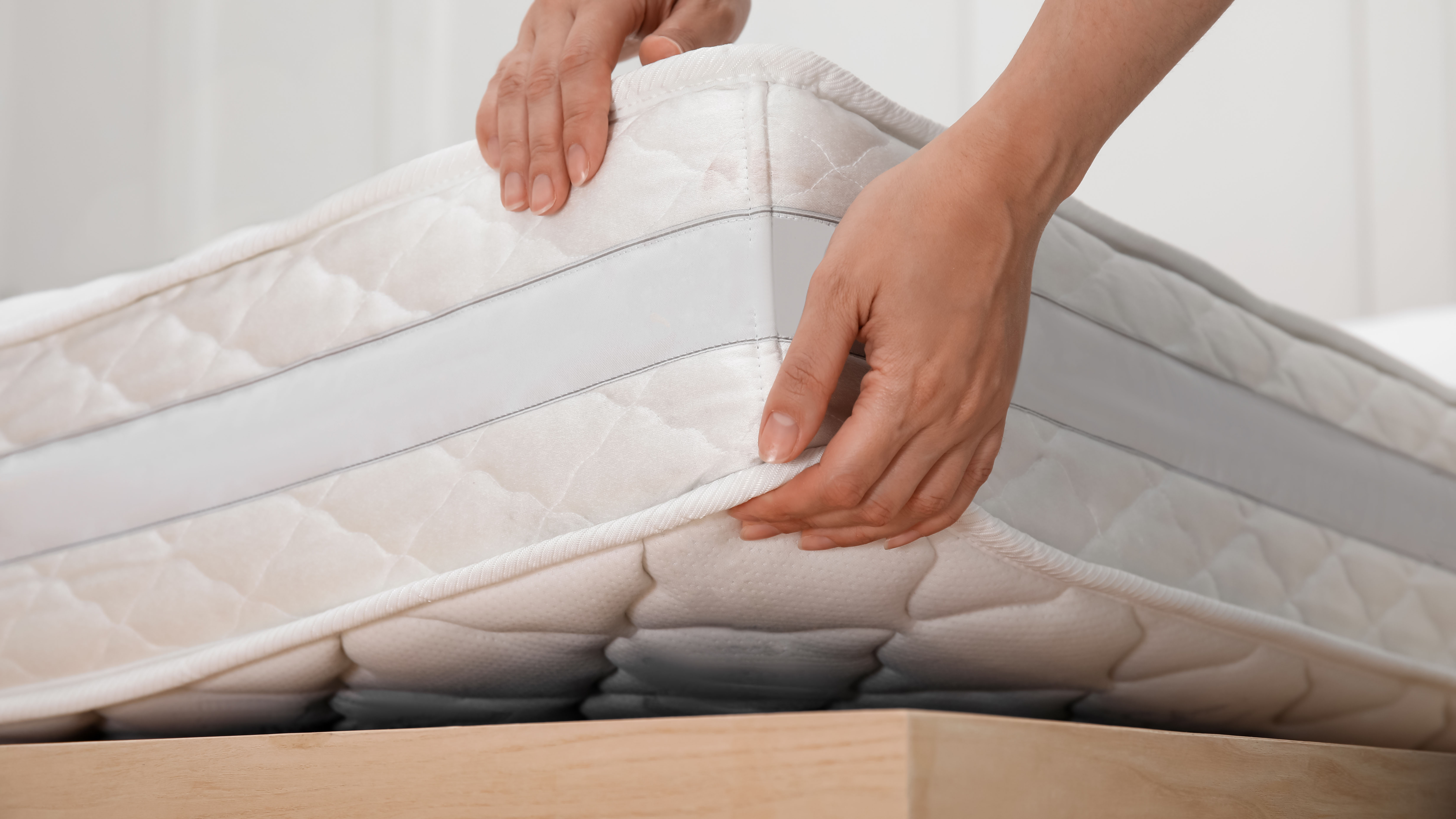
A good rule of thumb for whether a mattress needs replacing is if it's seven years old or more. However, it is a little more complex than that.
There are lots of different types of mattresses on the market at all sorts of price points, and how long a mattress lasts depends greatly on the composition of your bed and the quality of its materials. The length of the warranty you get with your mattress can be a good indicator of how long it's likely to be before you'll have to replace it, though.
Memory foam: 7-10 years
Hybrid: 7 years
Latex: Up to 25 years
Innerspring: 5-7 years
Memory foam mattresses
The best memory foam mattresses tend to be durable with a greater potential to last a long time. Thanks to their all-foam construction, there are few elements in there that are likely to wear out and compromise your sleep quality.
In short, a good memory foam mattress could last you up to 10 years if you take good care of it and rotate it regularly.
Hybrid mattresses
Layers of springs within the best hybrid mattresses mean that they may not last as long. That's because the springs can lose their tension over time (although how long that will take depends on the quality of the springs themselves).
This means that a hybrid bed should last for seven years with proper care, although some premium hybrids come with 25-year warranties, which means that you're likely to get a lot of use out of them.
Latex mattresses
If you're after maximum lifespan out of the box, consider one of the best organic mattresses made with natural latex.
Latex is a lot more hardy than memory foam and a quality latex mattress can last for up to 25 years, although you should check whether it's made with Dunlop or Talalay latex — Talalay is softer and so may not last quite as long as a bed made with Dunlop latex.
Innerspring mattresses
Finally, innerspring mattresses are, in general, likely to wear out the fastest, lasting between five and seven years. Because they're made mostly with springs, usually with a comfort layer on top, those springs will eventually lose their tension as with hybrid mattresses, but you'll feel the effects quicker because there's less between them and you.
Innerspring beds are popular because they tend to be the cheapest options, and the less you pay for an innerspring bed, the faster it's likely to lose its comfort and support. There's one significant exception to this rule, though...
Saatva Classic mattress: twin was $1,399 now $999 at Saatva
The Saatva Classic is an innerspring hybrid that's also our absolute favorite mattress. Put aside what we've just told you about hybrids and innersprings, because this bed is beautifully constructed with long-lasting materials and comes with a lifetime warranty. In our Saatva Classic mattress review it scored perfect marks in most performance categories, and it's the highest-scoring mattress we've ever tempted. Pick up a queen for $1,739 (was $2,139) in the current Saatva Black Friday sale and you're investing in a bed that will last you a very long time.
3 signs it's time to replace your mattress
It's sagging
The surest physical sign that your mattress is past its prime is if there's a dent in it that simply won't go away. The materials in any mattress will degrade over time, whether they're springs, foam or natural materials such as wool or cotton, and this is likely to happen more in the areas where you customarily sleep.
Rotating your mattress on a regular basis can slow down the wear and tear process. While the recommendation used to be to flip your mattress regularly, this applied to traditional innerspring beds, and most modern mattresses can't be flipped due to the arrangement of their internal layers.
Ultimately, though, if there's a you-shaped indentation in your bed, sagging or random dips or lumps all over the place, it's almost certainly time to ditch your mattress.
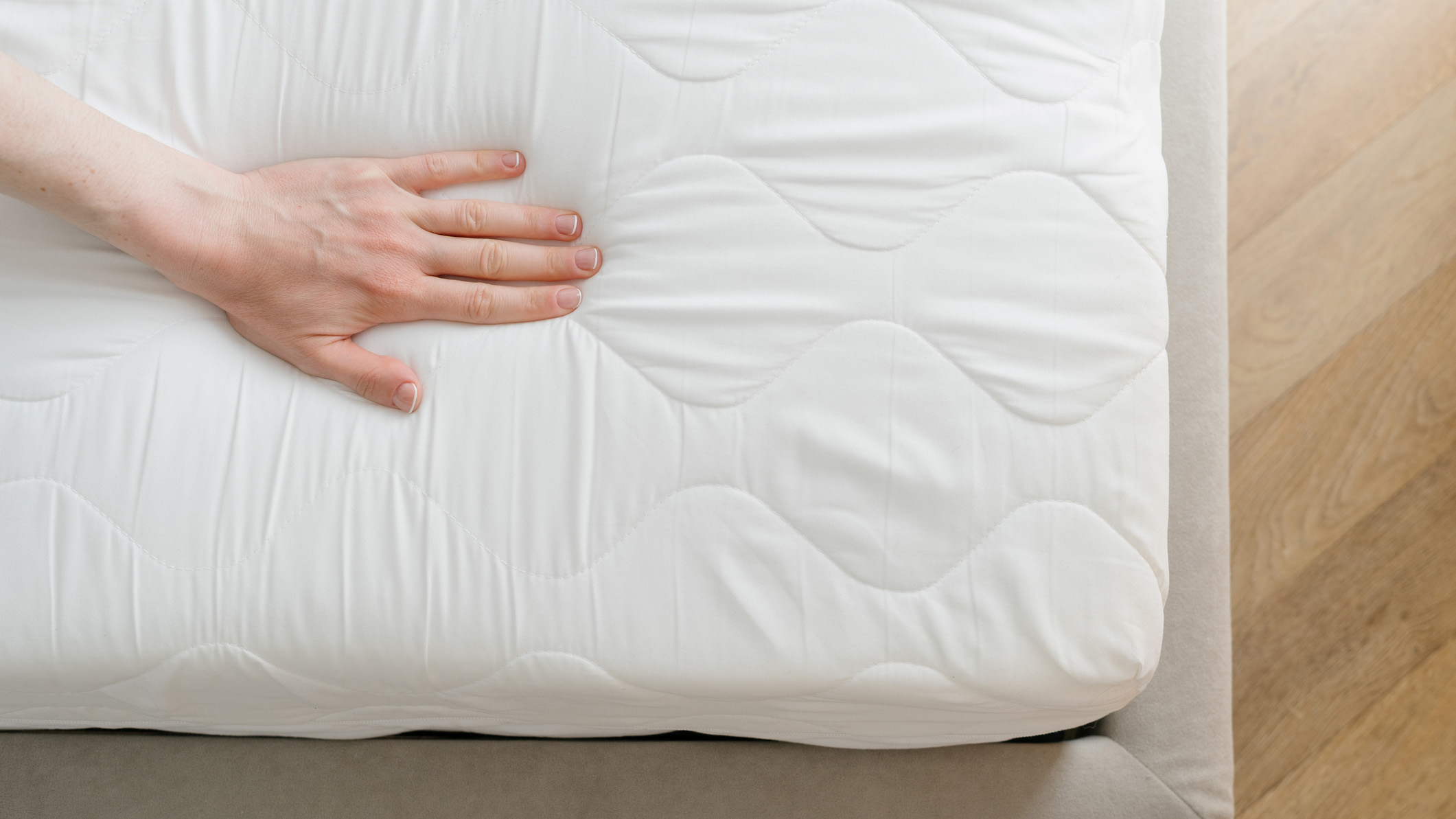
You're waking up in pain
Even if your mattress looks like it's still in good shape, if you're regularly waking up feeling like you've just been put through the wringer (or even just feeling like you're not properly rested), this could be because your mattress is no longer giving you the support you need.
If you've started waking up stiff and sore, and the pain goes away after a bit of stretching or as the morning progresses, it's probably your mattress that's to blame. As a mattress ages and its materials wear out, it might not be providing the support that you need, which means your spine could be out of alignment, resulting in back pain.
Also, if your elbows, hips and shoulders aren't adequately cushioned when you sleep on your side, it could lead to joint pain.
Choosing a new mattress that best suits your sleeping style should result in pain-free sleep, but be sure to pick a model with a long risk-free mattress trial so that you can test it thoroughly at home.

It's looking the worse for wear
Finally, if your mattress looks like its best days are behind it, it's almost definitely time to find a replacement. Obviously dips and bumps in the sleep surface are a big giveaway, but also look out for other signs of wear and tear.
If your mattress has actual tears or holes in its cover, that's a big warning sign. And if you haven't invested in one of the best mattress protectors it may also have unsightly (and unhealthy) stains or even mold growth.
If it doesn't look clean, there could be bacteria and even dust mites in your bed; if your allergies or asthma have taken a turn for the worse, this could easily be the cause.
Cleaning your mattress every six months and regularly vacuuming your mattress will help prolong its lifespan, but sadly even the best cared-for bed will run out of steam sooner or later.
How often should you replace your bedding?
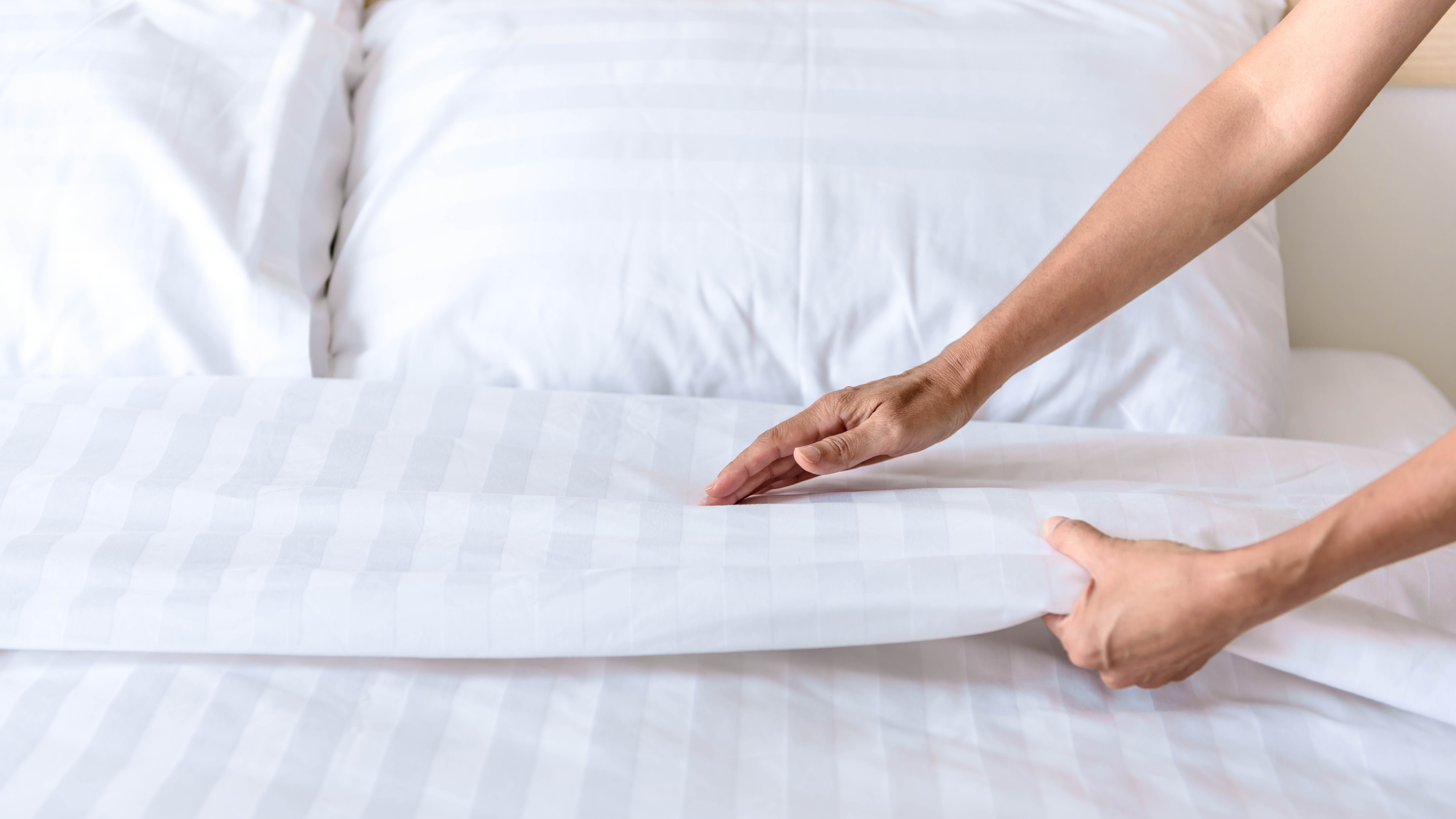
To help maintain a healthy sleep environment and keep your mattress in good condition, keeping your bedding fresh is essential.
Starting with a mattress protector. In general we'd suggest that a couple of years is a good lifespan for a mattress protector, but if yours comes with a long warranty then you should get more use out of it. For example, the Purple Waterproof Mattress Protector comes with a 10-year warranty.
Mattress protector: 2 years
Duvet: 5 years
Bedsheets, pillow cases and duvet cover: 5-7 years
When it comes to bedding, you should change your bedsheets every week. But of course even your bedding is going to wear out eventually, and that's not just your bed linen. Your pillows, duvet and mattress protector won't last forever, and if you can't remember when you bought them then that's probably a sign that they need replacing.
According to the bedding experts at Scooms, you should replace your duvet every five years, while you should get new pillows every one to two years. As for your bedsheets, pillowcases and duvet cover, they recommend that linen bedding should be replaced every five to seven years, while Egyptian cotton bedding is more durable and can last for between seven and 12 years.
If you're after long-lasting bedding that feels great to sleep on, we have a recommendation for you...
Coop Sleep Goods Cotton Percale Sheet set: twin was $169 now $84.50 at Coop Sleep Goods
This luxurious sheet set is made from cotton percale that feels crisp and clean and becomes softer with every wash. It includes a fitted sheet, a flat sheet and two pillowcases (except for twin and twin XL sizes, which come with just one). There are four elegant colors to choose from, and in the Black Friday bedding sales there's 50% off, so a queen size set will cost you $99.50 (was $199). There's a 100-night sleep trial, one-year warranty and free shipping.
How often should you replace your mattress topper?
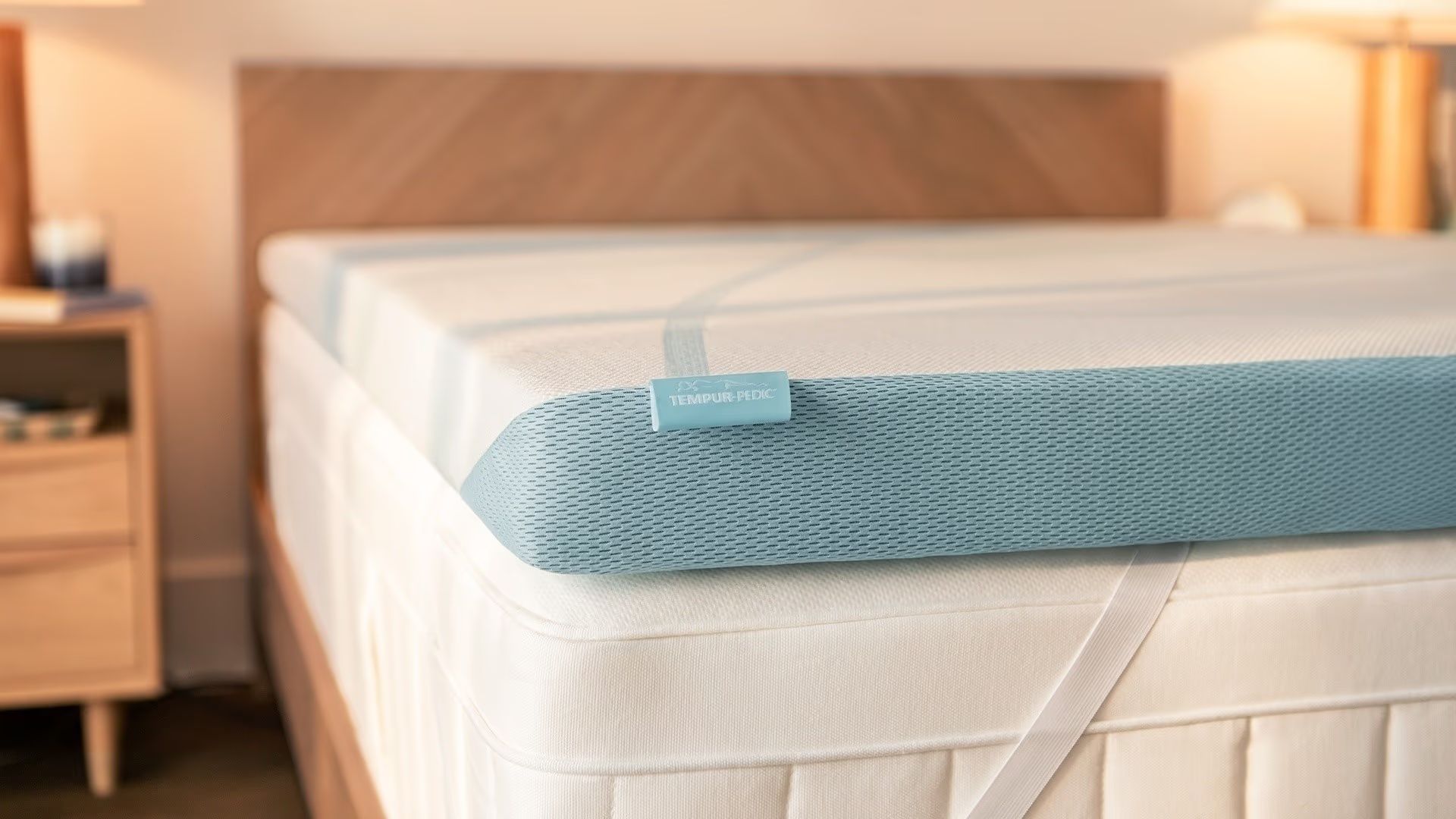
If your mattress is showing its age but you can't quite run to the expense of a new bed, one of the best mattress toppers can upgrade its comfort and support, and extend its lifespan for a few years.
It's a great stopgap solution, but you'll need to bear in mind that a topper won't last forever — and in fact a mattress topper has an even shorter lifespan than a regular mattress.
How long does a mattress topper last? As with mattresses, it depends on the materials in it. The most popular options are memory foam toppers, and on average they'll last between two and five years. Latex toppers can last between five and 15 years, while wool toppers are good for around 10 years. Watch out for toppers filled with feathers or down, though, as their average lifespan is between one and two years.
The signs that your mattress topper needs replacing are much the same as you'll get with a mattress — if it's no longer comfortable and supportive, or if it's visibly worn, torn or stained, it's probably at the end of its life. If you want a mattress topper that'll last a long time, however, we think this is a strong option:
Tempur-Pedic Tempur-Adapt + Cooling Topper (queen): was $429 now $311.40 with TOPPERS code at Tempur-Pedic
We think the Tempur-Adapt + Cooling Topper is the best mattress topper you can get, and while it's not cheap, its impressive 10-year warranty means that it's made to last. At three inches deep it'll soften a hard mattress or smooth out a lumpy bed, and its cooling upgrade means it won't result in you overheating at night. And even when it's not in the sale you can get a discount by using the TOPPERS code: that'll get you a queen size topper for $311.40 (was $429). Find out more in our Tempur-Adapt + Cooling Mattress Topper review.
Our top tips on how to choose the best mattress for your sleep
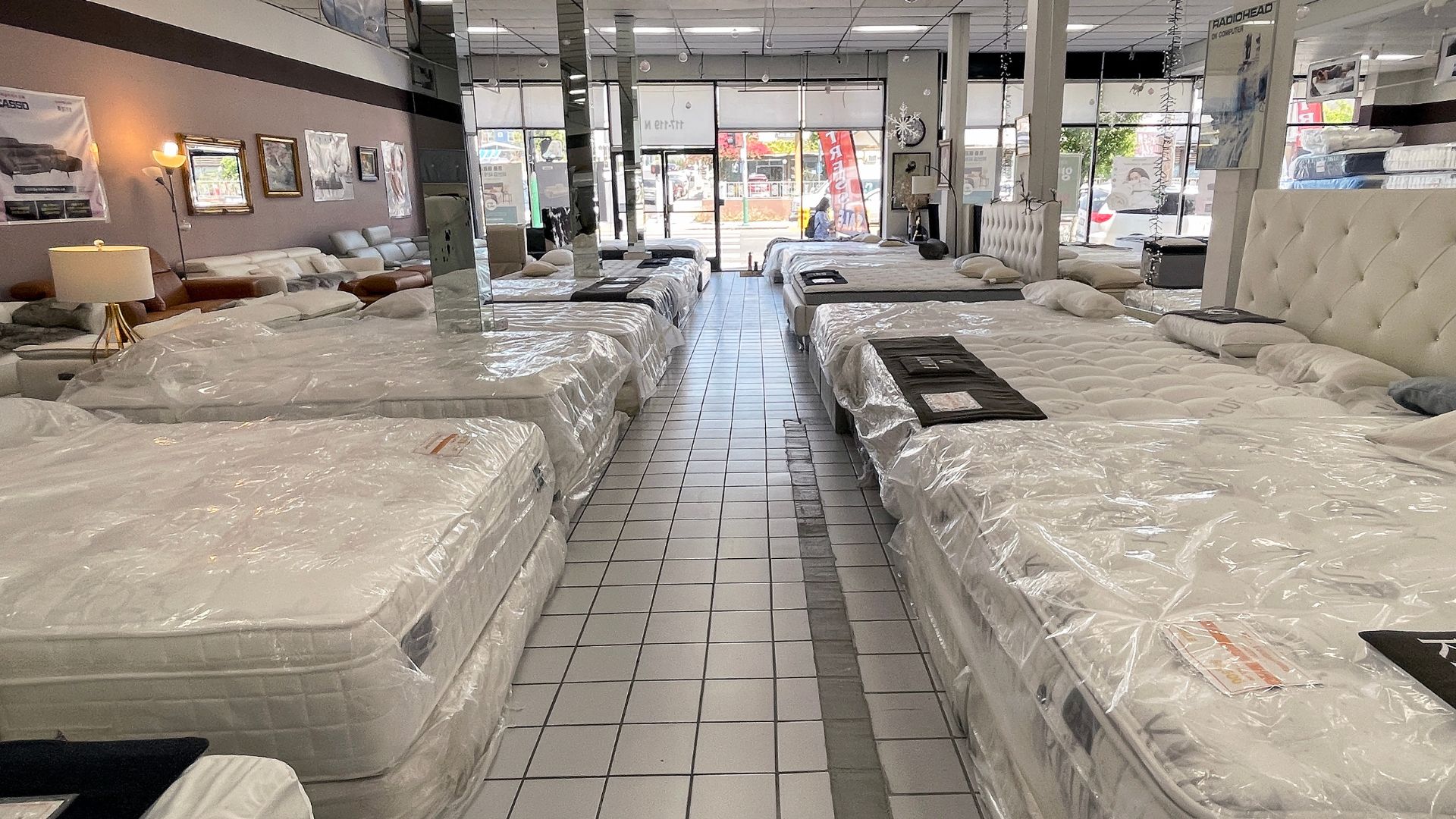
Sooner or later you'll have to bite the bullet and invest in a new mattress. But what should you choose?
That's a huge question, and the answers depend entirely on factors such as your sleep position, your body type and, of course, your budget. Our guide to how to choose a mattress can set you in the right direction, but here are the three main things to consider:
- Your sleep style: softer mattresses are a better fit for side sleepers, firmer mattresses will give back and stomach sleepers the support they need, while medium-firm beds are good all-rounders that will suit most people.
- Mattress type: we've already outlined the main mattress types in terms of how long they last. Beyond that it'll come down to your personal preferences and budget. Both memory foam and hybrid beds come in options for all sleep styles, but memory foam usually works out cheaper and has a more sink-in feel, while hybrids have a bit more bounce and cost more. Latex beds tend to be most expensive and often skew firm, while innerspring mattress are usually cheapest with a lot of bounce and a lack of motion isolation.
- Sleep trial: don't buy a mattress without one. It can take up to 30 days or more to decide whether a mattress is the perfect fit for you, and most reputable mattress brands will give you a lengthy risk-free sleep trial during which you can get to know your mattress and return it if you don't get along with it. Some brands such as Saatva and DreamCloud will give you a whole year; you probably don't need that long, but you should favor brands that give you 90 days or more.

Jim is a freelance writer and performer based in Bath, UK, whose work can be found on sites including TechRadar, Tom's Guide, T3, PetsRadar and Creative Bloq. Jim started out over a quarter of a century ago, covering technology and video games, and they've been expanding their repertoire ever since. On any given week Jim's likely to be writing about design, sleep, wellness and even cats, and has learned an awful lot about the mattress industry over the past few years.
You must confirm your public display name before commenting
Please logout and then login again, you will then be prompted to enter your display name.
 Club Benefits
Club Benefits





